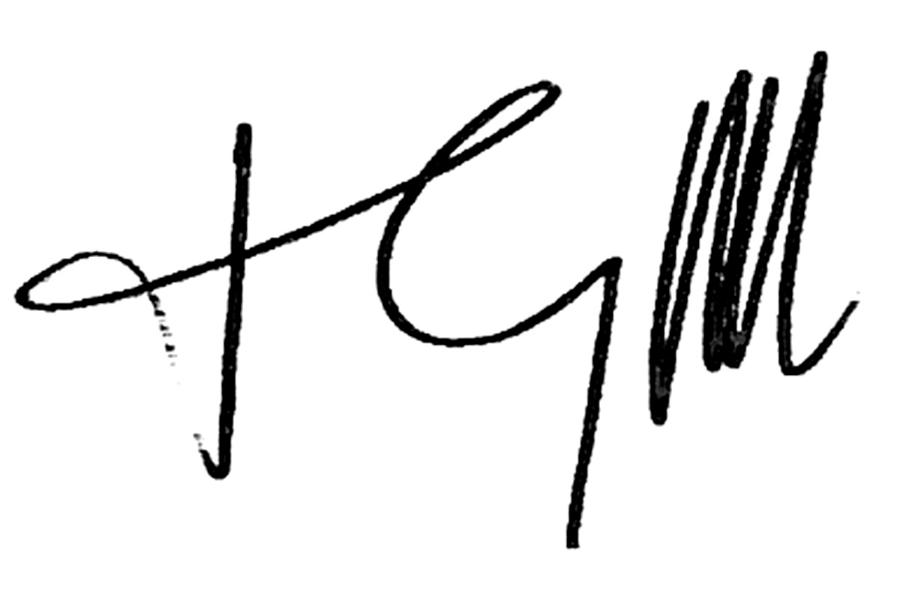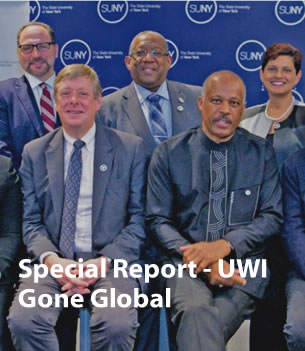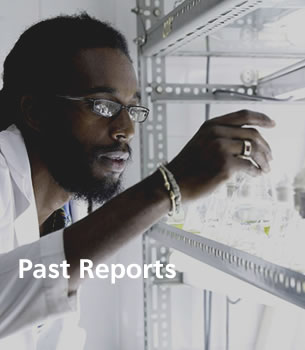Share this page
As the University exited the period, there was no doubt that, all matters considered, the irrefutable conclusion could be drawn that its reputation, at home and abroad, has never been higher. Such a statement could not be made without taking on board the considerable evidence relevant to multiple assessment criteria. The gravity of the assertion has been weighed and validated.
We are a public university. While we are driven by a businesslike approach to the corporate culture surrounding our income and expenditure, we are also mindful that in the management of higher education as a public good we are not a “for profit” financial institution in the current narrow usage of the term. Rather, the profit we pursue from our commitment and compassion is the growth and development of the people and communities we serve. Their profiting in every sense from our presence is the proof of our pertinence and relevance.
We took a strategic management decision to prepare our university for robust global engagement within the emerging regime of international partnership. We seek not to compete in a crude, corrosive fashion but to compare collegially and collaborate inter-culturally for mutual empowerment and advancement. In this regard, we chose to carefully and cautiously participate, for the first time, in the system of global university rankings.
We opted to engage the Times Higher Education (THE), considered the most prestigious of global ranking registers. Internal preparations were intensive and precise knowledge of ranking methodologies was domesticated and dissected. On the basis of scientific scrutiny, we moved forward with the THE. The results were extraordinary; far better than the sceptics anticipated.

Professor Sir Hilary Beckles,
Vice-Chancellor,
The University of the West Indies
From a field of over 100 Caribbean universities, we received the number one ranking, and in a field of over 2,000 universities in the Caribbean and Latin America, we were ranked in the top 3%. This trajectory placed us in good stead to be ranked globally in a field of over 26,000 universities. Being ranked in the top 5% of the best universities globally has ushered a "Reputation Revolution" throughout our academy and its regional ecosystem. Everything around us has changed. All variables within and without have been modified. The UWI has been irretrievably altered and transformed.
In all fine universities, reputation is the key ingredient in the recipe of resilience and revenue. Without it, all falls flat. Its voice is silenced. There is no gain; everywhere is pain. The UWI's voice has etched its finest pitch; its position in the region and its location globally are at its strongest. We are now ready to capitalise and commercialise on our reputation as a regional and global heavyweight.
The journey to the global was built upon the very special and innovative work done by our four campuses. The faculty floor remains the centre of gravity of the academy determined to be excellent and ethical. Campus reports to Council set out this record of achievement over which principals have presided. Professors have been proficient; our administrators driven by principles of efficiency, and our students have responded to the call to be critical and courageous.
It was within this context that the University rose up to celebrate its 70th year of service and leadership within the Caribbean nation-building project. Born into the colonial ethos of 1948, it has soared as the pelican of regional pride. It was a moment in the building of a monument in which there were celebrations of achievements, and a recommitment to responsibility. We looked to the future as we recalled the past and took passional delight in the achievements of the present.
The future of universities, it has been said, is bent into shape by the degree of their financial security. To this end, the University took its boldest ever step; we met with the Heads of contributing governments to discuss new options and opportunities for funding. The assurances of governments have called into being a new financial environment that has already produced considerable alleviation and hope for the future. Here again, we are on the cusp of a new financial dispensation that augurs very well for the academy.
The regional and global achievements of our staff and students reside at the centre of this report. When the International Association of Universities selected The UWI as the global leader in respect of advocacy around Sustainable Development Goal 13, Climate Smart Action, it took place on the eve of our students winning the Regional Super 50 Cricket Competition, defeating the national teams of Trinidad and Tobago in the semi-finals and Guyana in the final. Such examples of regional and global excellence and leadership have set standards for the 21st century that is calling and finding us ready to rise.
This report, then, contains evidence of the old treasures of our UWI as well as a map to guide the search for future good fortunes. It is a reflection of inter-generational achievement as well as an indication that preparations are being made for the next to come.

Professor Sir Hilary Beckles,
Vice-Chancellor, The University of the West Indies







